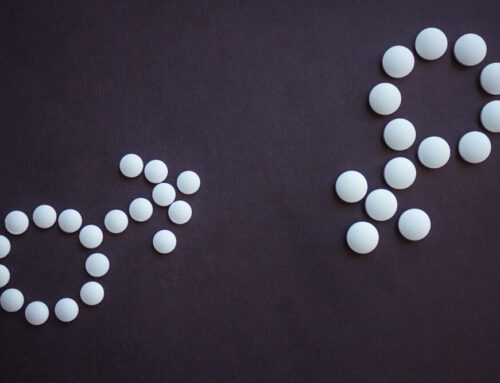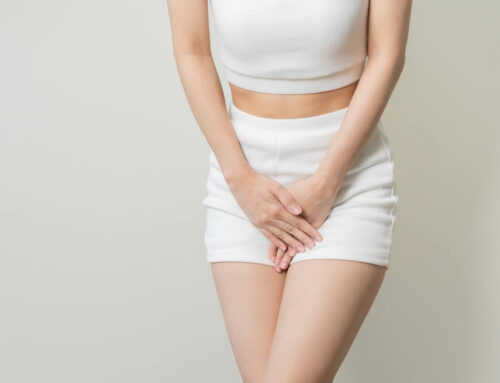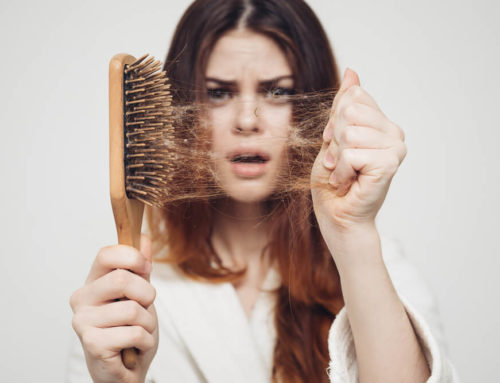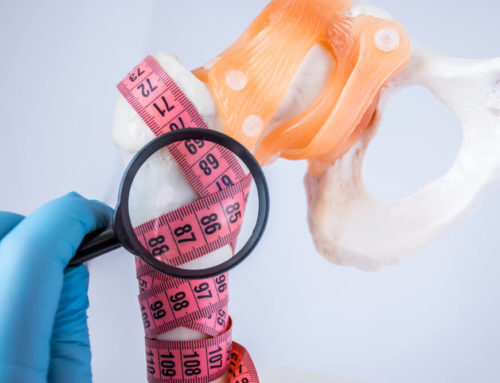Aging is a completely normal process that comes with some visible changes, such as hair turning thinner and gray and skin lines starting to become more prominent. However, other body parts in women are also affected by the aging process, namely their vagina. A mature vagina is not the same as those women in their 20s. The appearance change of an aging vagina happens gradually. What’s more, the vagina and vulva changes with age make the whole area feel differently as well, especially during sexual intercourse. Taking good care of your aging vagina is vital to maintaining your health and well-being. There are also treatments such as vaginal rejuvenation that can help.
Different women have different vaginas and symptoms. But, on average, we can say that
perimenopause starts in the early 40s, with menopause often happening at around 50 years of age. During perimenopause, it’s common for women to experience irregular cycles, heavy or light flows, mood swings, hot flashes, sleep issues, irritability, etc. The fluctuating hormonal levels, particularly the drop in estrogen, are the leading cause of these symptoms. While menopause is a normal occurrence in the life of every woman, there’s no need to suffer through the signs and uncomfortable mature vagina effects on your own. There are several options to make this transition easier, so don’t hesitate to contact doctor Fern F. Taisenchoy-Bent, MD, to improve your quality of life as much as possible.
That said, we’ll go through the expected transformations of the vagina by age.
Varicose Veins on the Vulva
As the vulva changes with age, you may observe varicose veins on it due to weaker venous valves. This is especially common in women who have given birth before.
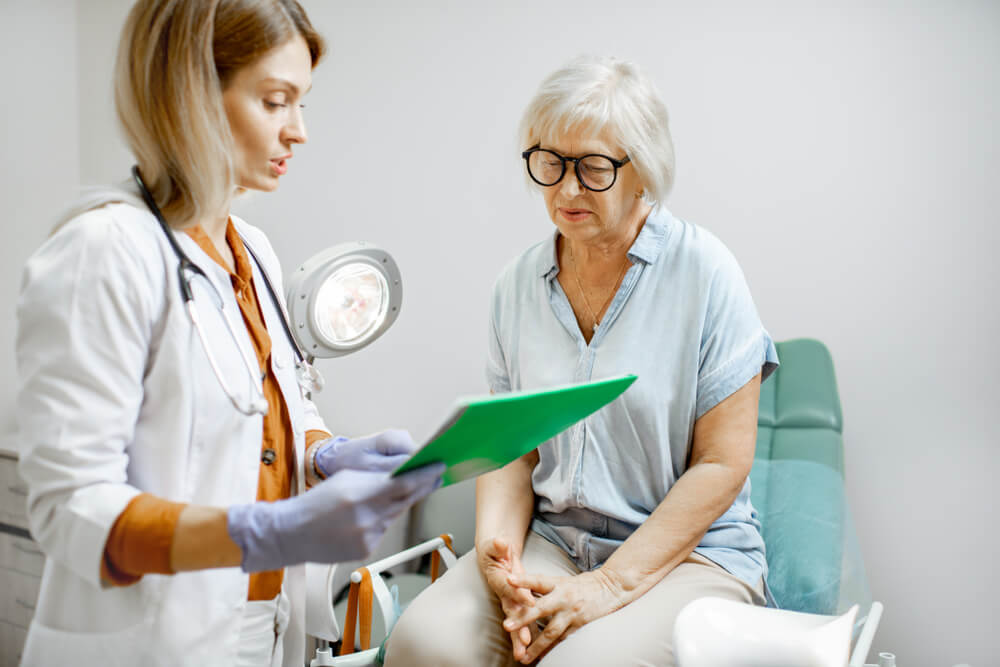
The Weakening of Pelvic Floor Muscles
The muscles holding up your pelvic floor weaken naturally as you age. Loss of strength in the pelvic floor muscles can have an adverse effect on a woman’s ability to control her bowel and bladder function. Urinary incontinence and vaginal prolapse are possible problems that can arise from this.
Weight gain can also cause strain on the pelvic floor, so it’s crucial to maintain your ideal weight and practice frequent pelvic floor exercises to avoid any issues. These won’t solve any existing problems, but they can help prevent new ones.
The Appearance of Pubic Hair
Pubic hair, like hair elsewhere on the body and head, gradually becomes thinner and sparser (which some may find to be good news) and turns gray as we age.
Vulva Changes with Age in Appearance
Skin and tissue of the vulva and labia grow thinner and less plump as the body ages and estrogen levels decline, resulting in a loss of fat and collagen. This thinning out is typical, and it’s common for the labia to shrink and lighten in color when blood flow to the genital region decreases. To keep the skin from being irritated and for maximum comfort, it may be best to avoid abrasive scrubs when bathing.
More Frequent Urinary Tract Infections
Low estrogen levels can cause bladder atrophy, which can make the changes and symptoms of the vagina by age grow worse, including urinary tract infections, nocturia, and a need to urinate more frequently.
Vaginal Infections Are More Common
Hormonal shifts as woman ages and goes through menopause can cause the vaginal wall to thin out and upset the vagina’s delicate pH balance because it stops producing as much beneficial bacteria, which helps keep harmful bacteria at bay. When a woman’s vaginal ecosystem is disturbed, she is at increased risk of developing vaginal infections like bacterial vaginosis. Of course, all women are different, and the recurring rate of vaginal infections in different vaginas will also vary from person to person.
Potential Decline of the Sex Drive
Many women experience decreased libido throughout menopause, though this is not universal. A person’s libido can be affected by a wide variety of things, including hormones and their emotional state, not just an aging vagina.

Mature Vagina May Feel Dryer
There are a number of changes that occur in the body as estrogen levels drop and shifts in the vagina by age occur, including a dry vagina and reduced lubrication during sexual intercourse. This is a common complaint among women going through menopause. The dryness can be uncomfortable, sometimes even painful.
What’s more, vaginal dryness can have a significant effect on your intimate life. It hurts to have sex when your vagina is dry, and it hurts even more when your body tenses up in anticipation of the pain. In addition to the widespread availability of vaginal moisturizers, experts advise devoting more time to foreplay during sexual encounters. Water soluble personal lubricants can also be utilized to ease any annoyance. If none of these options work, vaginal estrogen (available as a cream or tablet) may be recommended.
Sexual Intercourse May Feel Different
As estrogen levels decline, the vaginal tissue constricts, making it less flexible, as well as shorter and narrower. Also, the vaginal opening turns smaller. Even though these changes usually result in less enjoyable sex, engaging in regular sexual activity might help ward them off.
How to Maintain a Healthy Vagina and Enjoy Sex as You Age?
- Personal lubricants can be helpful for women who are going through or have gone through menopause and are experiencing vaginal dryness due to fluctuating hormones. There are a wide variety of lubricants available, from those sold at drugstores to all-natural solutions like coconut oil.
- During the transition from perimenopause to menopause, vaginal dryness and loss of elasticity are common; a topical estrogen cream or vaginal estrogen ring can make a huge difference.
- Having sex becomes easier the more you do it. Different vaginas become less flexible and more rigid when sexual activity is avoided. All women, including those in their 40s going through perimenopause and those who have already gone through menopause, can benefit from regular sexual activity.
- Drinking plenty of water will increase your energy and circulation, and the increased blood flow may make your vagina more sensitive. Similarly, as alcohol dehydrates tissue, you might want to cut back or stop consuming it altogether.
- Vaginal blood flow may be lowered by smoking cigarettes. In addition, smoking decreases estrogen levels even more; therefore, you should try to give up the habit.
Hormone replacement therapy (HRT) and vaginal rejuvenation treatment can be helpful for
many women with perimenopausal and menopausal symptoms. There’s no reason to suffer through the most natural part of the aging process when you can simply report to the doctor and ask for help. That said, don’t hesitate to reach out to us at Fern F. Taisenchoy-Bent, MD, LLC, and schedule your appointment for personalized and committed quality care. After all, your gynecological health can considerably affect your overall well-being and the way you experience life, and you deserve to enjoy every second of it.



